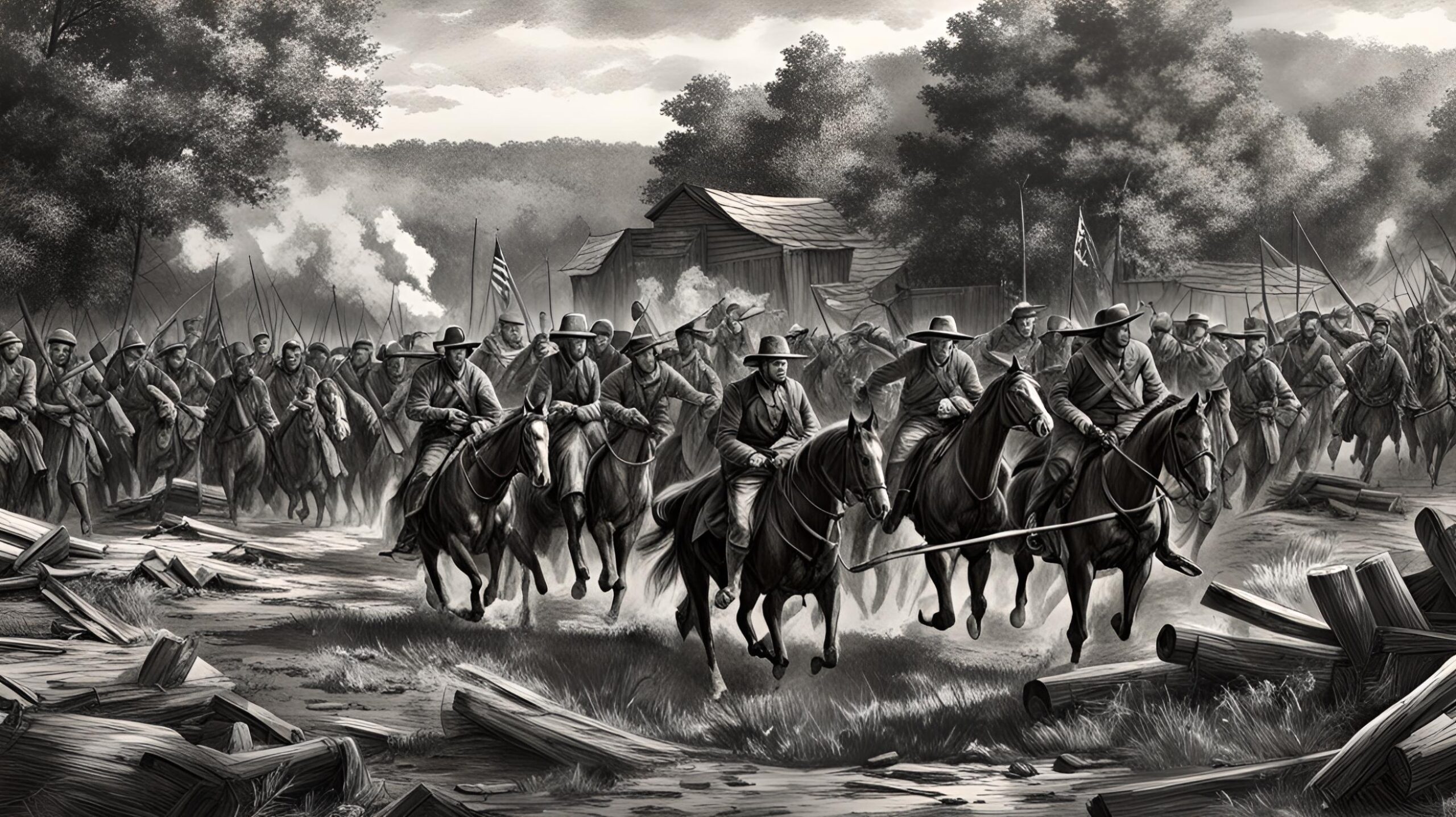Flashback to July 4
American History

When it comes to historically significant events, the Atlanta Campaign’s Battle of Jonesborough, which unfolded on August 31, 1864, stands prominently. This pivotal battle was part of the Atlanta Campaign during the American Civil War, where the Union Army, headed by General William T. Sherman, vied for control of Atlanta, an essential Southern railway hub.
The Battle of Jonesborough was the climactic battle of this campaign. The strategic maneuvering and decisive actions taken on this day had lasting repercussions. Understanding the significance of the Battle of Jonesborough and the broader Atlanta Campaign requires a deep dive into its strategic importance, key players, and outcomes.
Located just south of Atlanta, Jonesborough represented a critical point in the Confederate’s railway network. The Western & Atlantic Railroad, a pivotal supply and communication line for the South, passed through this city. Union forces recognized that capturing Jonesborough would severely damage the Confederate Army’s ability to resupply and maintain its hold over Atlanta.
Significant figures from both sides of the American Civil War played pivotal roles in this battle. General William T. Sherman commanded the Union forces with characteristic determination and strategy. On the Confederate side, General John B. Hood and Lieutenant General William J. Hardee defended Atlanta and Jonesborough with tenacity. Despite their efforts, the outcome of this battle changed the course of the Civil War.
Gettysburg may have been the turning point of the Civil War, but the Battle of Jonesborough was where the Confederacy’s hopes for victory began to crumble. Sherman executed a tactical plan to sever the railroads supplying Atlanta. Realizing this, Hood dispatched Hardee with around 24,000 troops to intercept and halt the Union forces. This move would set the stage for the intense battle.
On August 31, 1864, battle lines were drawn and the physical conflict ensued. Despite being outnumbered, Sherman’s forces skillfully managed to repel multiple Confederate assaults. By the end of the day, the Union had successfully severed the railroad line at Jonesborough, isolating Atlanta from further reinforcement and resupply. And with the fall of Jonesborough, Atlanta’s fate was sealed. Within days, on September 2, 1864, Union forces took full control of Atlanta.
The Battle of Jonesborough significantly altered the course of the Atlanta Campaign and the Civil War. Cut off from support, Atlanta fell into Union hands, helping turn the tide of public opinion in favor of the North. This victory also delivered a considerable blow to the morale of the Confederacy.
Sherman’s decisive victory at Jonesborough and his eventual capture of Atlanta shifted the momentum of the Civil War towards the Union. With the Confederacy’s critical railroad hub under Union control, the North could cripple Southern resupply efforts and maneuver with relative ease across the region. It marked a turning point in the War, paving the way for Sherman’s March to the Sea.
In the digital age, it’s easy to overlook the significance of such historical events like the Battle of Jonesborough. However, learning about battles like this is crucial to understanding the course of the Atlanta Campaign and the American Civil War as a whole. By studying the past, we can gain valuable insights on strategy, perseverance, and the cost of freedom that remain relevant today. The Battle of Jonesborough was a defining moment, a turning point that influenced the trajectory of the American Civil War and, ultimately, shaped the nation’s history.
We strive for accuracy. If you see something that doesn't look right, click here to contact us!
Sponsored Content

Due to the post-Independence…
Celebrate the historic debut…

Groundbreaking takes place for…
On July 4, 2004,…

Construction on Erie Canal…
Construction on the Erie…

City of Providence, Rhode…
Discover the rich history…

President Abraham Lincoln asks…
On 7/4/1861, President Abraham…

A Borrelly discovers asteroid…
On July 4, 1893,…

